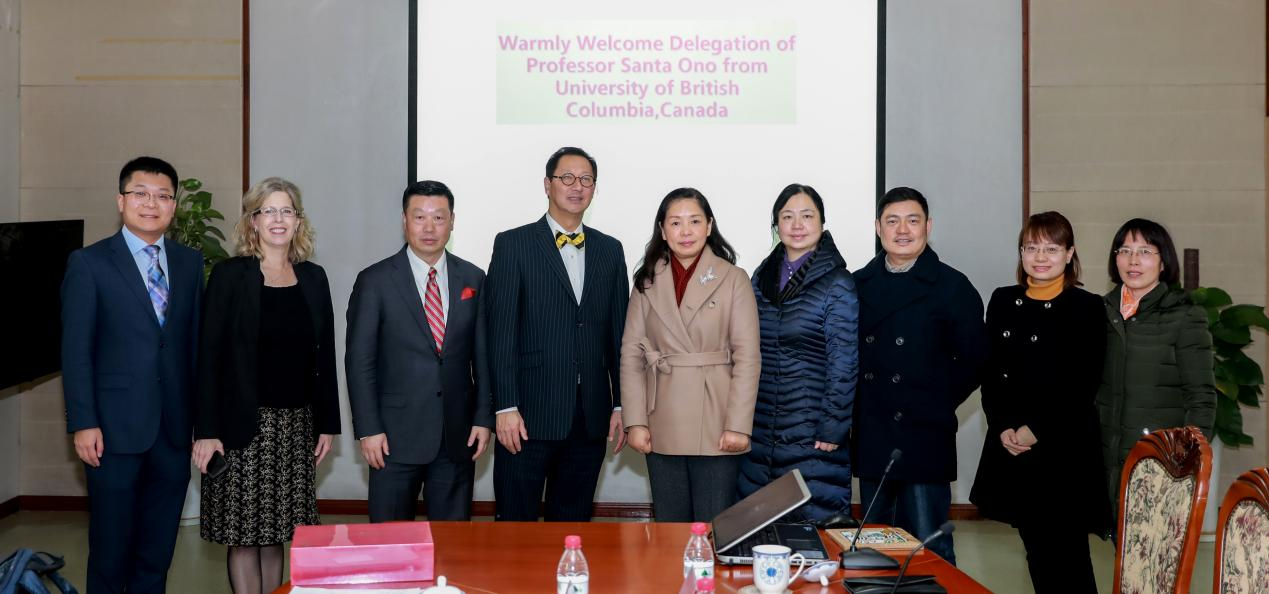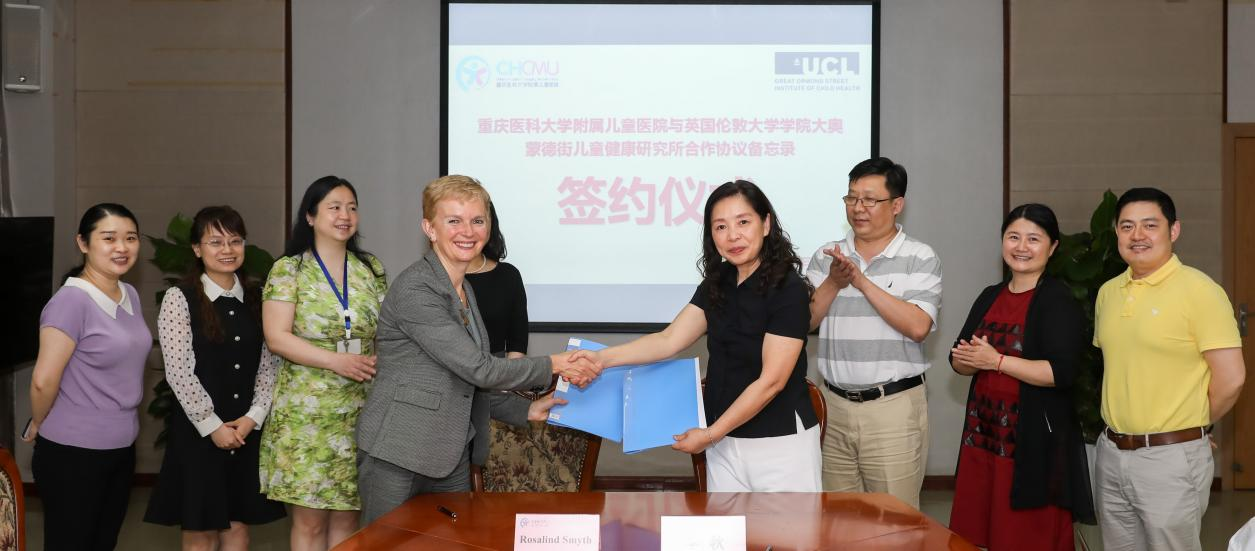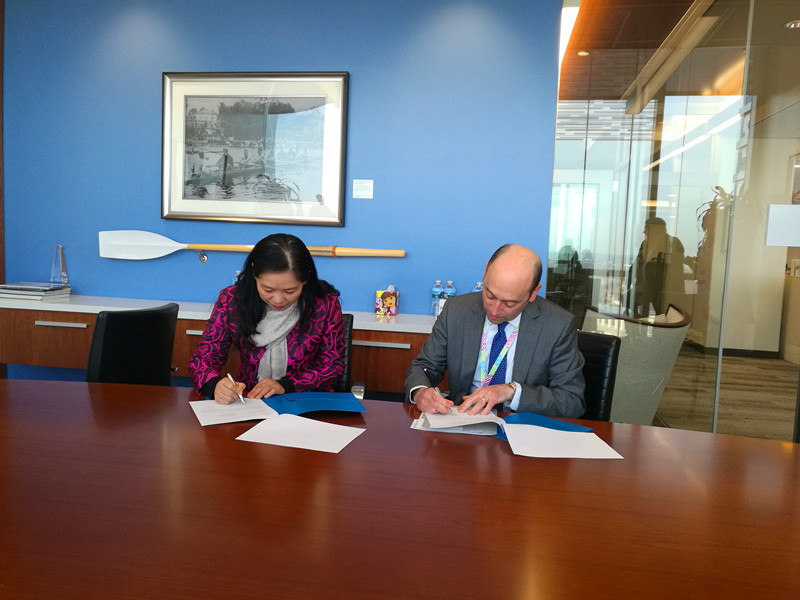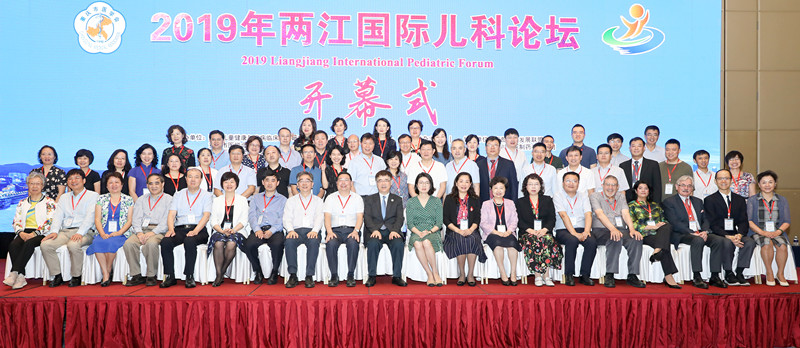To keep up with the strategic development of China, the Children's Hospital of Chongqing Medical University has developed close cooperation with world-class universities and institutions in the United States, Canada and Hong Kong in the field of prominent pediatric diseases, leading in the development of pediatric discipline with a series of fruitful achievements. In 2014, it was recognized by the Ministry of Science and Technology as a International Demonstration Base for Scientific and Technological Cooperation on Major Childhood Development Diseases. The Base will establish a high-level platform for international scientific and technological cooperation and industry-university-research promotion, playing a leading and exemplary role in the field of international pediatric cooperation.
1. Main research fields
(1) Nutrition and growth
(2) Infection and immunity
(3) Comprehensive prevention and control of chronic diseases
(4) Comprehensive correction of congenital malformations
2. Sites, equipment and facilities
The supporting unit of this base is the Affiliated Children's Hospital of Chongqing Medical University, which has always attached importance to scientific research, development and laboratory infrastructure construction. At present, the base is located on the 6th-10th floors of the Science and Education Building and the 1st floor of Rehabilitation Building of the Children's hospital. There are nearly 10000 M2 space available for scientific research, including central laboratories, key discipline direction laboratories, PI research laboratories, P2+ laboratory, experimental animal centers and so on. These labs and centers are all of national and international standards. At present, the Base has grown into a multifunctional research platform integrating basic, clinical and transformation research.
The Base has various scientific research equipment worth over 100 million yuan. There are 128 large equipment in labs that is worthy of over 100,000 yuan, flow cytometer, laser confocal microscope, high-resolution microscope, patch clamp, gene sequencer, laser micro cutting instrument, polypeptide synthesizer, ultra-high-speed centrifuge, digital PCR instrument, liquid chip instrument and a high-performance liquid chromatography analyze etc. According to management regulations on labs of the Children’s Hospital, all equipment is taken good care of in a unified manner to achieve resource-sharing.
3.Important events
(1) The Base and the university of British Columbia (UBC) reached a strategic cooperation agreement to build the "China-Canada Joint Translational Medicine Research Center for Child Development and Alzheimer's Disease" and the "Translational Medicine Research Laboratory for Cognitive Development and Learning and Memory Disorders". To this end, several world-class scientists from the Brain Research Center of the University of British Columbia have been brought in, including academic Wang Yutian, from the Royal Academy of Canada, and Professor Song Weihong, the chief researcher of Alzheimer's disease in Canada.

SANTA ONO, President of UBC, visited our Children’s Hospital
(2) In cooperation with UCL (University College London), the Base established the immune and molecular diagnostics and technical specifications of Primary immunodeficiency (PID), and built the largest Consortium of online case registration system and screening and diagnosis for PID of China. And now, the Base is the largest research center for the treatment and prevention center of PID in China.

In June 2019, Children’s Hospital renewed the cooperation agreement with the Institute of Child Health of UCL.
(3) In cooperation with the Children's Medical Center of the University of Cincinnati, researchers from the Base have published more than 600 SCI papers in JCI, JACI, PNAS, J Neuroscience, Plos Bio, Hepatology, Blood, J Virol and other journals in a wide range of aspects, including the prevention and individualized treatment of chronic diseases in children, the Primary and secondary refractory nephropathy, hematologic malignancies, the Precision diagnosis and treatment for hereditary metabolic disease, the High-intensity focused ultrasound (HIFU) for non-invasive treatment of childhood tumors and so on, made a number of innovative achievements , and formed a team with strong innovative ability.

In December 2016, President Li Qiu of Children’s Hospital of CQMU and President Michael Fisher of Cincinnati Children's Hospital renewed the cooperation agreement.
(4) The Base cooperated with the University of Chicago to conduct research in clinical and translational medicine regarding birth defects and tissue engineering, congenital malformations and tissue engineering environmental factors and mechanisms of developmental defects such as urogenital congenital malformations and congenital heart disease and other fields.
4.International Cooperation
In the past 5 years, the Base have hosted 15 high-level international and domestic academic conferences, including the 19th congress of Chinese pediatric society, Liangjiang International Pediatric Forum, annual Conference of APSID congress from 2017 to 2020, China-UK International Pediatric Respiratory Forum and 2018 Pediatric Academic Annual Conference. The lab has undertaken more than 20 various international and domestic cooperation projects such as sub-projects of the National Science and Technology Support Program, sub-projects of the National Key R&D Program, and other international (regional) cooperation and exchange projects. Famous domestic and foreign experts were invited to give almost 70 lectures in variousfields . More than 304 domestic and foreign experts came to visit, including 77 for lectures, 110 for exchanges, and 114 for attending conferences, which effectively improved the Base’s academic influence in China.

2019 Liangjiang International Pediatric Forum